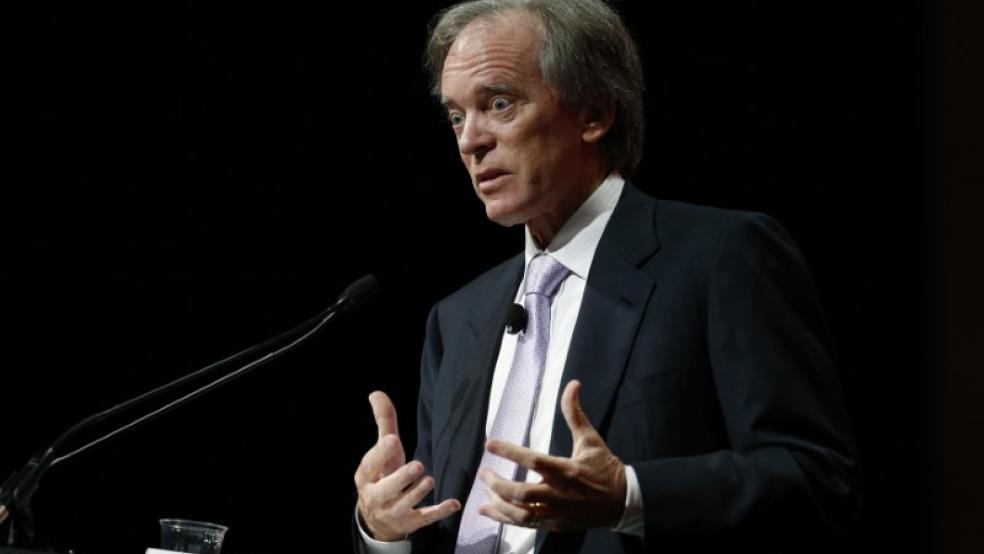NEW YORK (Reuters) - Bill Gross, the closely watched bond investor, on Wednesday said the Federal Reserve will most likely begin raising U.S. interest rates in the middle of 2015 but fixed-income securities will not be hurt as much as people anticipate.
"I don't forecast a bear market in bonds," Gross said on the Forbes & RIA Database Advisor Playbook iConference webcast. Gross, portfolio manager of the Janus Global Unconstrained Bond Fund, reiterated his views that when the Fed begins moving the federal-funds rate, it must be cautious and probably needs to stop between 2 percent and 3 percent. "My expectation would be 2 percent fed funds is the final destination," Gross said, adding that bond markets are still attractive if his scenario plays out.The Janus Global Unconstrained Bond Fund, which Pimco co-founder Gross started managing in October, attracted an estimated $770 million in November, bringing its assets to more than $1.2 billion, according to Morningstar data released this week. The Janus portfolio had only $12 million at the end of May.Gross said the U.S. is still highly leveraged and that there are structural demographic headwinds, including the effects of technology displacement, which lower real growth. Gross told Reuters in July that if the Fed remains accommodative, then the benchmark 10-year Treasury yield belongs in the 2.5 percent and 3 percent range "now and for the next few years". The yield on the 10-year Treasury note traded at 2.16 percent on Wednesday.Gross said Treasury Inflation-Protected Securities, or TIPS, "are getting pretty attractive" as there is now limited downside in terms of price. Investors worldwide pulled $700 million out of Treasury Inflation-Protected Securities funds in the week ended Dec. 3, as falling oil prices fueled a decline in inflation expectations.The outflows were the biggest in 14 months and marked a 13th straight week of withdrawals, according to a Bank of America Merrill Lynch Global Research report, which also cited data from fund-tracker EPFR Global. A drop in oil prices to four-year lows over the period sparked a sharp decline in inflation expectations as measured by 10-year TIPS breakevens, which hit their lowest level since October 2011 around 1.8 percent. (Reporting By Jennifer Ablan; Editing by Diane Craft)Janus's Gross says no bear market in bonds on slow-moving Fed: webcast

© Jim Young / Reuters



